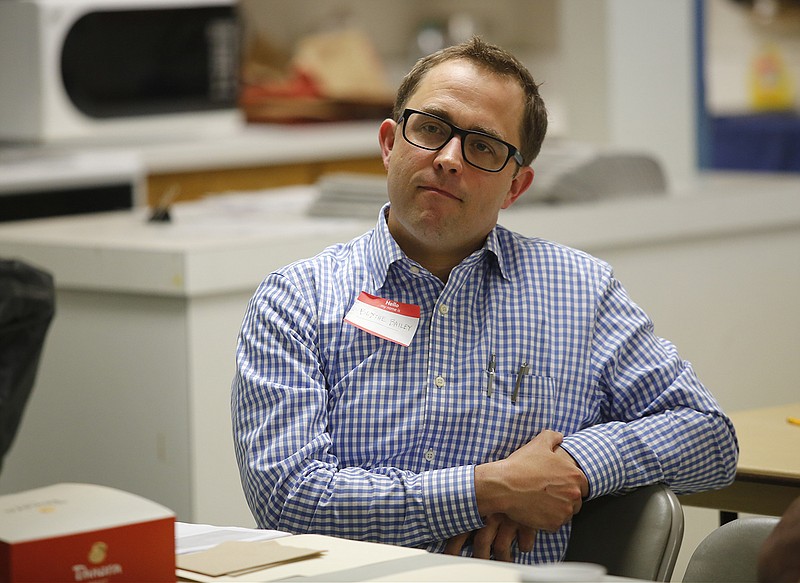Chattanooga's smart streets may soon start talking.
The City Council on Tuesday approved an agreement between the city's transporation department and the University of Tennessee at Knoxville for a program that will allow freight and emergency vehicles to communicate with the city's traffic signal system.
The idea of the pilot program is to use technology to help those vehicles move more easily through the city and improve traffic safety. And while there are many potential benefits, there's no cost to the city.
"If there's a truck coming from Knoxville, and there's an accident in Charleston blocking access to Enterprise South, the device could relatively automatically communciate to the driver. There's no sense in going 72 mph because of the delay, it's better to slow down to 55 and save gas," said city Transportation Director Blythe Bailey.
Kevin Comstock, the city's signal system engineer, said the system also could help large trucks and emergency vehicles get where they are going by giving them priority.
"What we are going to do is let the freight vehicles communicate with the traffic signal system, so the signal could anticipate that vehicle coming and give it priority," Comstock said. "If the trucks are close enough, the signal could wait for them, or if they are far enough away, the signals could serve other side roads. The same would go for emergency vehicles."
The focus area of the pilot program is state Highway 153 and Enterprise South.
Comstock said the city has 56 wired intersections there, and the city is hoping to outfit 200 to 350 vehicles with the new technology.
City officials have been working with Volkswagen, Amazon and Coca-Cola to get connected with freight carriers toparticipate.
The program is being promoted by the U.S. Department of Transportation, so participating could increase the city's chances at getting federal highway funding down the road, Bailey told council members Tuesday.
It could also help the city with federal air quality grants, which it has used to build bike lanes and other non-motorized transportation projects in the city.
The vehicle devices will be able to measure emissions and air pollution. That data will be able to be used to tweak the signal system to ease pollution-producing traffic congestion.
The university is also looking forward to seeing how Chattanooga collects and uses the traffic and air pollution data.
"We are always excited to have the opportunity to team with innovative public organizations like the city of Chattanooga on research enterprises," said Taylor Eighmy, vice chancellor for research and engagement at UTK.
Contact staff writer Louie Brogdon atlbrogdon@timesfreepress.com, @glbrogdoniv on Twitter or at 423-757-6481.
